#historical lit
Text
Dearest Enkimoots (Epic of Gilgamesh Mutuals), today I have learned that the Epic of Gilgamesh is made up of 5 sumerian poems (Gilgamesh and Huwawa; Gilgamesh and the Bull of Heaven, Gilgamesh and Agga of Kish; Gilgamesh, Enkidu, and the Netherworld; and Death of Gilgamesh) dating to over a thousand years before the full Epic (which was in Akkadian).
I know I will be reading these along with The Descent of Ishtar and Eridu Genesis (The Flood Myth), so i thought you all may also like it.
#the epic of gilgamesh#autism#enkidu#humbaba#literature#poems#poetry#history#historical lit#gilgamesh
41 notes
·
View notes
Text
"'You do not know me,’ said Tortoise. ‘I am a changed man. I have learned that a man who makes trouble for others makes trouble for himself.'"
- Chinua Achebe, Things Fall Apart (published in 1958)
#chinua achebe#things fall apart#literature#international literature#african lit#historical lit#free palestine
7 notes
·
View notes
Text
apropos of nothing, here are some gay historical fiction novels that engage with historical queerness in thoughtful, complex, and interesting ways (organized chronologically)
hild by nicola griffith
↪ early 7th century england
a tip for the hangman by alison epstein
↪ 1585-1593 england
confessions of the fox by jordy rosenberg
↪ 1702-1724* england
the confessions of frannie langton by sara collins
↪ 1812-1826 jamaica to england
patience and sarah by isabel miller
↪ 1816 america
devotion by hannah kent
↪ 1830s prussia to australia
the sweetness of water by nathan harris
↪ 1865 america
whiskey when we're dry by john larison
↪ 1885 america
the city of palaces by michael nava
↪ 1897-1913 mexico
tipping the velvet by sarah waters
↪ 1890s england
at swim, two boys by jamie o'neill
↪ 1915-1916 ireland
the gods of tango by caro de robertis
↪ 1913-1920s argentina
uncommon charm by emily bergslien and kat weaver
↪ 1920s america
the book of salt by monique truong
↪ 1930s vietnam to paris
the amazing adventures of kavalier and clay by michael chabon
↪ 1939-1954 america and beyond
the flight portfolio by julie orringer
↪ 1940 france
the savage kind by john copenhaver
↪ 1940s america
a thin bright line by lucy jane bledsoe
↪ 1950s america
*this one has a framing device and footnotes from the present day but the bulk of the story is set in the early 1700s
#lit#queer lit#this is a pointless text post#this is in no way comprehensive. i have read much more queer historical fiction and i will continue to read it#anyway one of the books on this list i did not really like and it's up to YOU the reader to figure out which one using clues from my blog#i didn't want to be like x character with y identity bc i don't think it's a meaningful way to interact w fiction ESPECIALLY histfic#as always feel free to slither into my dms if you want recs/have questions/comments/complaints
482 notes
·
View notes
Text
"As soon as we die, we enter into fiction. Just ask two different family members to tell you about someone recently gone, and you will see what I mean. Once we can no longer speak for ourselves, we are interpreted."
— Hilary Mantel, from Reith Lectures, Resurrection: The Art and Craft
#hilary mantel#lit#literature#historical fiction#english#english lit#english literature#death#wolf hall
12K notes
·
View notes
Text
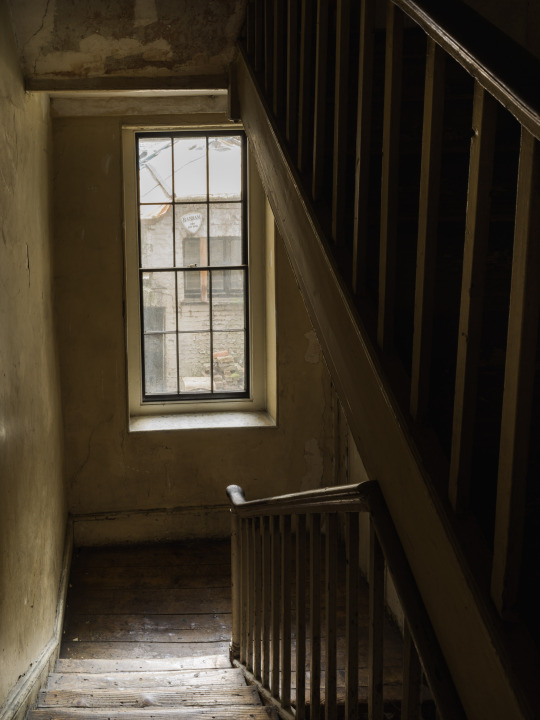
Lexington Street, Soho
Photographed by Freddie Ardley
#photographers on tumblr#photography#architecture#architect#interiors#interior design#travel#london#soho#dark#historic#story#lit#city#urban#writing#inspiration
506 notes
·
View notes
Text
There are years that ask questions and years that answer.
- Zora Neale Hurston, Their Eyes Were Watching God
#quotes#books#literature#lit#classics#academia#light academia#dark academia#chaotic academia#book#book quotes#quotation#Zora Neale Hurston#Their Eyes Were Watching God#Fiction#Historical Fiction#Novel#Famous Book Quotes
412 notes
·
View notes
Text










VASILISA PETROVNA was an ugly little girl: skinny as a reed-stem with long-fingered hands and enormous feet. Her eyes and mouth were too big for the rest of her. Olga called her frog, and thought nothing of it. But the child’s eyes were the color of the forest during a summer thunderstorm, and her wide mouth was sweet. She could be sensible when she wished—and clever—so much so that her family looked at each other, bewildered, each time she abandoned sense and took yet another madcap idea into her head.
In truth, VASYA was still awkward, but she had begun growing into her face. The bones were still rough-hewn and overlarge, her mouth still too wide and full-lipped for the rest of her. But she was compelling: the moods passed like clouds over the clear green water of her gaze, and something about her movements, the line of her neck and braided hair, caught the eye and held it. When the light struck her black hair it did not gleam bronze as Marina’s had, but dark red, like garnets caught in the silky strands. (x,x)
#vasya petrovna#vasilisa petrovna#the winternight trilogy#litedit#litblr#bookedit#fantasyedit#the bear and the nightingale#katherineardenedit#katherine arden#my edit#the girl in the tower#book aesthetic#the winter of the witch#book recommendations#thewinternighttrilogyedit#vasyapetrovnaedit#vasilisapetrovnaedit#historical fantasy#lit#*characteraesthetic
123 notes
·
View notes
Text
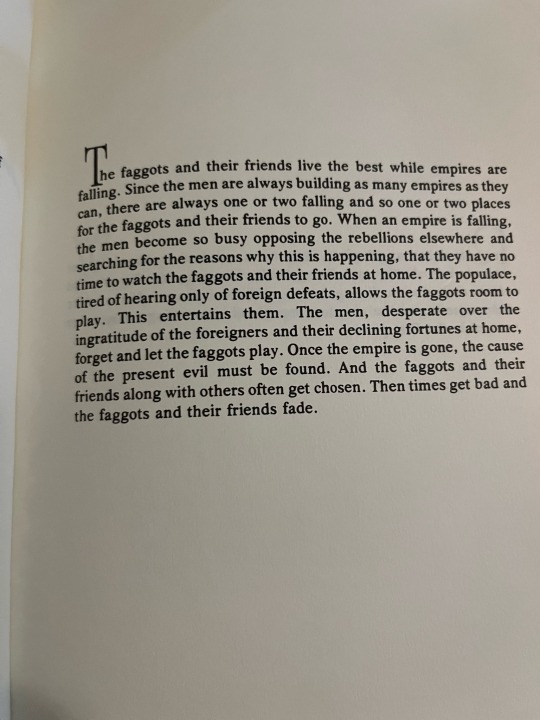
"The faggots and their friends live the best while empires are falling. Since the men are always building as many empires as they can, there are always one or two falling and so one or two places for the faggots and their friends to go. When an empire is falling, the men become so busy opposing the rebellions elsewhere and searching for the reasons why this is happening, that they have no time to watch the faggots and their friends at home. The populace, tired of hearing only of foreign defeats, allows the faggots room to play. This entertains them. Once the empire is gone, the cause of the present evil must be found. And the faggots and their friends along with others often get chosen. Then times get bad and the faggots and their friends fade."
The Faggots & Their Friends Between Revolutions, Larry Mitchell (1977)
#hmm sounds familiar#the faggots and their friends between revolutions#the Larry Mitchell#gay lit#queer lit#gay history#queer history#lgbt+ lit#lgbtq+ lit#lgbt+ history#vintage gay lit#historic gay lit
641 notes
·
View notes
Text
The Companion by E.E. Ottoman
goodreads

New York, 1949
After years of trying to break into New York City's literary scene, Madeline Slaughter is emotionally and physically exhausted. When a friend offers her a safe haven as the live-in companion to reclusive, bestselling novelist Victor Hallowell she jumps at the chance to escape the city.
Madeline expects to find rest and quiet in the forests of Upstate New York. Instead, she finds Victor, handsome and intensely passionate, and Audrey Coffin, Victor's mysterious and beautiful neighbor.
When Victor offers her a kiss and the promise of more Madeline allows herself to become entangled even as Audrey is also claiming her heart. The only problem is that Audrey and Victor are ex-lovers with plenty of baggage between them. As Madeline finds herself opening up and falling in love with both she starts to wonder, can there be a future for all three?
Mod opinion: I haven't read this one yet but it is on my tbr. t4t4t romance yippiiiieeeeeeee. Update: I've read and enjoyed it. t4t4t erotic romance.
#the companion#e.e. ottoman#polls#trans lit#trans literature#trans books#lgbt lit#lgbt literature#lgbt books#historical fiction#romance#trans man#own voices#trans woman#to be honest i did not expect all the fuckin & suckin but i appreciate it!
169 notes
·
View notes
Text
Emer ingen Forgaill did not tell a guy her father was trying to force her to marry "lol I want to marry Cú Chulainn, I will always want to marry Cú Chulainn, and also he could beat you up" for me to constantly see "have you considered the women in the Middle Ages who LIKED arranged marriages" -- like there's room for nuance, especially re: literature VS reality, as well as the way it's generally treated by the protagonist as being shocking (I remember a particularly egregious example in a book about Juana of Castille), but also...like...there's a reason chivalric romances exist in the form they do.
#and again i think there's a lot of nuance#and i absolutely KNOW I'm being a bitch#but also...even historically...there was a lot of focus on Bad Arranged Marriages and clever girls who escaped it#because...that created conflict#see: first branch of the mabinogi#if you don't know medieval lit...you can't accurately say what is and isn't being portrayed accurately#because...that isn't where your training is#the MENTALITY is often portrayed wrong but not the distaste per se#(though even in the Mabinogi you have women who have a diverse range of reactions to their relationships)
70 notes
·
View notes
Text





Dear Gentle Reader, can't get enough Bridgerton? Think it would be better if we'd just admit Eloise is sapphic? Fear not! These ladies loving ladies have just the thing...
A Bluestocking's Guide to Decadence by Jess Everlee ⭐⭐⭐⭐ A decadent butch lesbian in a lavender marriage seeks out the aid of a straight-laced, bluestocking doctor for a friend. It's just business...until it isn't!
A Lady for a Duke by Alexis Hall ⭐⭐⭐⭐⭐ Lord Marleigh died at Waterloo and like a phoenix, Viola Carroll rose from the ashes to spread her wings. Now she's home, but does she dare trust her old friend, the Duke of Gracewood, with her heart and her true self?
Don't Want You Like a Best Friend by Emma R. Alban ⭐⭐⭐⭐⭐ Marriage is a lady's only preservative from want. Imagine the scandal if one fell for her best friend! There is no future there...unless the two of you can make a match between your newly-single parents.
Infamous by Lex Croucher ⭐⭐⭐⭐⭐ Edith "Eddie" and Rose have been best friends since childhood. But after their debutante ball, Rose is talking about marriage while Eddie can't imagine anything but being a famous writer. When a curious invitation from scandalous poet Nash Nicholson brings Eddie and Rose to an eccentric, hedonistic house party...will it be the end of their friendship or the start of something more?
#book recs#historical fiction#regency romance#wlw#trans woman#trans lit#queer lit#lgbt lit#sapphic#lesbian#bisexual#lgbt reads#lgbtqia#a bluestocking's guide to decadence#jess everlee#a lady for a duke#alexis hall#infamous#lex croucher#don't want you like a best friend#emma r alban
54 notes
·
View notes
Text
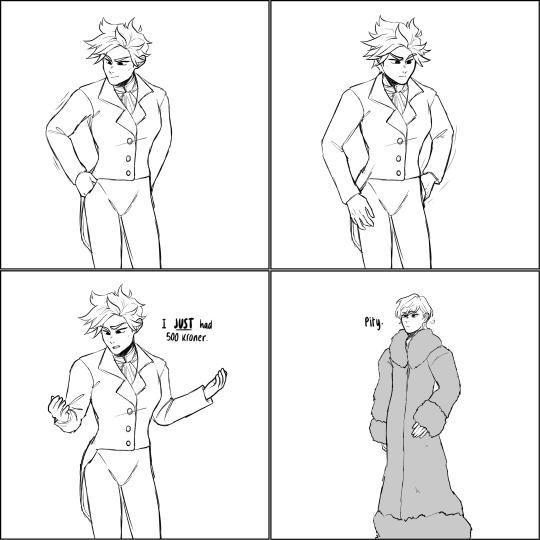
the prompt was "den finally gets little a money and nor pickpockets him Immediately"
#hetalia#aph#historical hetalia#aph norway#aph denmark#dennor#hws denmark#demark aph#norway aph#hws norway#Denmark tries to sell Iceland to Prussia ONE TIME and Norway (not amused) is like 'it's free real estate' and just pickpockets him#my best friend @blabaerlakris came up with this for the record she deserves all the credit I just did the doodlin' lmao#also this is strictly for the lulz and not a reflection on Norway in any way I lit rally live in Norway 😭😭
268 notes
·
View notes
Text
I’m doing a thing! It’s a retelling of the plot of The Brothers Karamazov from Grushenka’s perspective. You can read it on ao3.
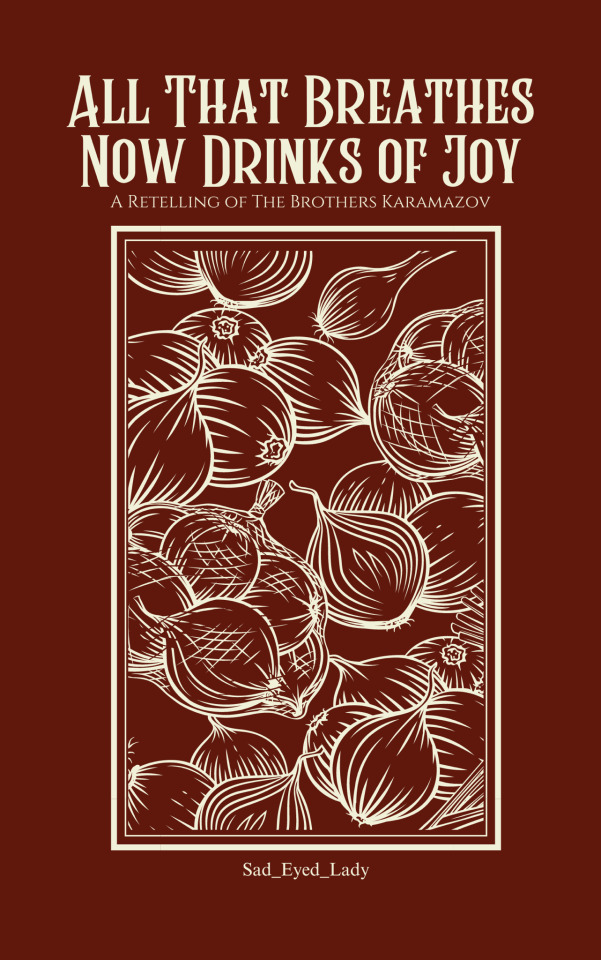
#my fics#the brothers karamazov#grushenka#agrafena alexandrovna svetlova#братья карамазовы#tbk#russian lit#russian literature#brothers karamazov#fyodor dostoevsky#dostoevksy#fanfic#fanfiction#classic lit#classic literature#ruslit#retelling#books#ao3 writer#writers on tumblr#historical fiction#fan fiction#classic books#female protagonist
75 notes
·
View notes
Note
re Batman '66 and the idea that Bruce is Dick's father is a super recent phenomenon, isn't it also simultaneously an old idea? since there was plenty of Golden Age before the '66 show when Dick was a child, he only wasn't adopted as Bruce's son because that wasn't something bachelors could really do back then, and Alfred wasn't always around as a parent figure to them both like he is in later eras (especially to Bruce, since back then Alfred only showed up after Bruce became Batman and didn't raise him)
I mean that's kind of a complicated question. I actually can't find any evidence that bachelors couldn't adopt in the 1940's, it just wasn't considered typical. Moreover, the narratives they appeared in were less refined, with less overall detail, and less grounded in reality, so their relationship tended to be based more on... for lack of a better term, vibes. It was often up to interpretation.
Dick was a child, yes, and some readers did project onto him and Bruce as a father-son duo due to lack of a strong paternal figure in their own lives (Superman and Captain America got a lot of that, too). But it wasn't a defined role.
Dick in Golden Age comics isn't treated as Bruce's child, he's treated as Bruce's equal, his partner. That's something that a lot of people who don't really "get" the appeal of child sidekicks don't seem to understand, they weren't conceived of as being lesser than their adult counterparts, they were supposed to be on relatively even footing. The whole point was to make a child reader feel like they could stand alongside their icons; whether that was a "realistic" relationship between an adult man and the young boy in his care didn't matter.
The one role besides partner that it can be definitively said Dick plays in the narrative is that of "the Beloved," the person Bruce cares about whose safety can be imperiled to raise the stakes of a story. But that still leaves the actual nature of their relationship pretty open and undefined -- and it didn't help that most other superheroes at the time filled that role not with their sidekicks but with their girlfriends. (This, plus living alone together and several storylines where Bruce getting a female love interest is positioned as a threat to the Dynamic Duo's partnership, is the source of many of the "Batman and Robin are gay lovers" accusations.)
Also, in the Golden Age, and even into the Silver Age to an extent, adult superheroes weren't always treated as fully, well, adult. Sometimes they came across more like bigger kids that young readers could project onto, or imaginary friends who were there to play with and empower them in ways their parents couldn't or wouldn't. A parent's presence would ruin the fantasy, after all. That's why a lot of stories in those eras lean towards the over-the-top and goofy, they weren't going for anything more or less than mimicking children playing pretend, and the characterization reflected that.
So yeah, it's... complicated.
#batman and robin#batman#bruce wayne#dick grayson#dc comics#brudick technically#historical lit discussions#dc comics asks#ask me stuff
62 notes
·
View notes
Photo
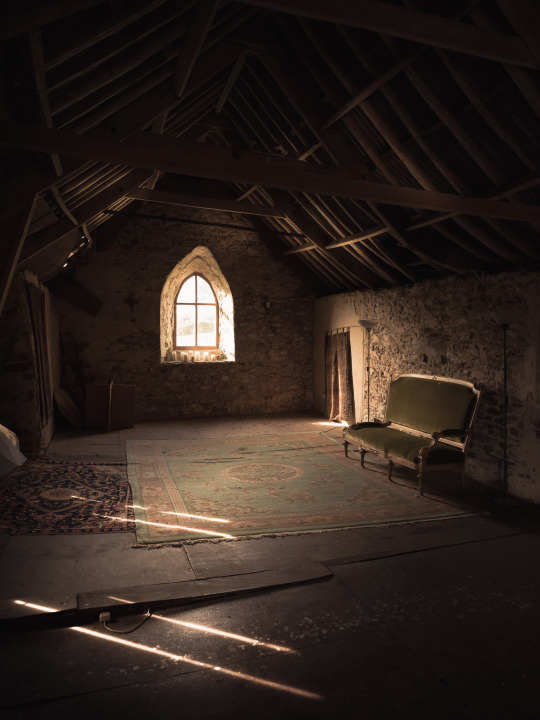
Blindmoor, Somerset
Photographed by Freddie Ardley
#interiors#architecture#photography#photographers on tumblr#original photographer#dark#lit#atmosphere#interior#barn#old#vintage#historic#somerset#uk#england#travel#story#hasselblad#style
2K notes
·
View notes
Text
The voice of the sea is seductive, never ceasing, whispering, clamoring, murmuring, inviting the soul to wander in abysses of solitude.
- Kate Chopin, The Awakening
#quotes#books#literature#lit#classics#academia#light academia#dark academia#chaotic academia#book#book quotes#quotation#Kate Chopin#The Awakening#Feminism#Fiction#Historical Fiction
400 notes
·
View notes